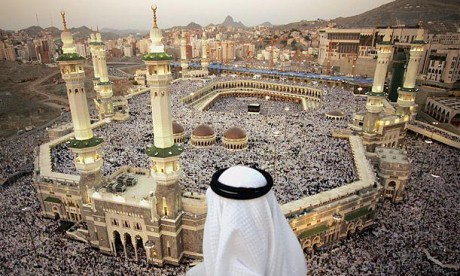Australian nurse Nelley Youssef is immersed in a sea of millions of white-robed pilgrims doing the tawaf of the Kaaba, the black cuboid structure at the heart of Masjid Al-Haram mosque in Mecca, Saudia Arabia.
She takes tiny, shuffling steps as she completes seven anti-clockwise laps that form one of many rituals she completes as part of her Haj.
“For Muslims, Mecca is sacred, it’s the centre of the earth. Haj is one of the five pillars of Islam, and becomes an obligation once a person is able to afford it.
“It gives you the opportunity to reflect on the blessings God Almighty has given humanity,” the nurse from Sydney’s Prince of Wales Hospital explains of the trip she made last year.
Youssef first visited Mecca in 2010 with her cousin and recalls being overwhelmed when she first laid eyes on the Kaaba.
“It was my invitation to visit the house of God and seek forgiveness before Him. My heart was jumping out of my chest,” she recalls of the Haj, the biggest pilgrimage in the world that draws millions of Muslims from around the world and is taking place this week.
While the Haj is probably the best-known pilgrimage in the world, there are many other spiritual locations attracting a growing number of Australians who put aside the rigours and stress of daily modern life to take time out for spiritual and physical renewal and enlightenment.
Sheikh Jehad Ismail is an Sydney sheikh who has led international pilgrimage groups to Mecca for many years.
“God wants human beings to experience through the Haj a spiritual and dynamic journey, and then apply the lessons learnt there to their daily life,” he says.
An Australian travel agency United World Travel owner Mahmoud Hammoud takes pilgrims every year for a 20-day trip to Mecca and Medina, the city where the Prophet Muhammad was born.
He is in Mecca with a group of 200 pilgrims; he says about 5000 visas are issued annually to Australians travelling for the Haj. Continue reading
Sources
- The Sydney Morning Herald, from an article written by Zohra Aly, lecturer in Arabic and Islamics at the Catholic Institute of Sydney.
- Image: asianews.it
